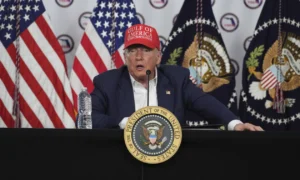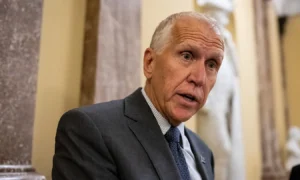As the polls open on Election Day, the contest between Vice President Kamala Harris and former President Donald J. Trump appears to be deadlocked, raising concerns that the election may be delayed and decided by the United States Supreme Court.
A few election-related challenges have already reached the Supreme Court. Last week, the court issued decisions allowing Virginia to remove 1,600 people from its voter rolls, declining to remove Robert F. Kennedy Jr. from two battleground states’ ballots, and allowing Pennsylvania voters whose mail-in ballots were deemed invalid to cast provisional ballots in person.
The question remains whether the presidential election will be so close that the court, which has a 6-3 conservative majority, will hear a case in the next days or weeks to determine who will be the next president.
Election experts believe it is unlikely that the Supreme Court would play a significant role in the outcome, although it is possible. Here’s what you should know.
What role might the Supreme Court play?
The Supreme Court has largely avoided political and electoral disputes, and most election-related litigation will remain in lower courts. However, once a matter has been filed in court, the Supreme Court may decide to hear it.
To do so, the court would need to find that it had jurisdiction over the matter and that a candidate was presenting a valid legal challenge, such as how particular types of ballots should be treated.
This is a high bar to clear.
“If there are no real good theories as to why there was some major flaw in how an election was run, then I really don’t see a pathway to litigating from being behind in an election to being a winner,” said Richard L. Hasen, an election law expert at the University of California, Los Angeles School of Law.
Which factors are most important?
Election experts believe that if the Supreme Court takes up a case in a state with a narrow margin of votes, it could have a significant impact on the ultimate outcome.
“The closer things are, the more you can expect a torrent of post-election litigation,” said Richard H. Pildes, an election law expert at New York University School of Law.
The margin of votes between Ms. Harris and Mr. Trump would have to be razor thin. Even a 10,000-vote differential, as seen in Georgia and Arizona in 2020, is unlikely to be close enough for a Supreme Court judgment to influence the final result.
The narrow margin would also have to be in a state with enough electoral votes to influence the final outcome.
Elections experts will focus on Pennsylvania, which has 19 electoral votes and, according to Professor Pildes, is “always a fertile ground for election litigation.”
What is the precedent for the Supreme Court’s decision on elections?
While the Supreme Court regularly hears election-related cases, it has typically declined to intervene in ballot counting.
The largest exception occurred in 2000, when the Supreme Court heard a case in Florida involving then-candidates Governor George W. Bush of Texas and Vice President Al Gore. By a 5-4 vote on December 12, 2000, the Supreme Court reversed the Florida Supreme Court and suspended the vote recount, allowing Mr. Bush to win the state and eventually the presidency.
In the end, Mr. Bush won Florida by just 537 votes.
“If we end up with a really close election like we saw in 2000, then the Supreme Court’s role could end up being dispositive,” said U.C.L.A. Professor Hasen. “Then you have a situation where the margin of error in how the election was run would exceed the margin of victory of the candidate.”
Will the election be that close?
It’s tough to forecast, but polls reveal one of the most closely contested presidential elections in American history.
Professor Hasen noted that close polling does not often result in close elections, and it is possible that none of the battleground states will be close enough for Supreme Court litigation to affect the ultimate conclusion.
What are the other possibilities?
It is also possible that the Supreme Court will hear cases after the election that will have no bearing on the presidential election but may have an impact on legislative races that determine which party controls the Senate or the House of Representatives.
The Supreme Court may potentially consider cases that, while not likely to tip the scales in 2024, could have long-term ramifications for future federal elections.







